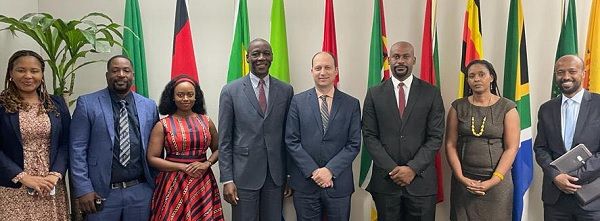
Rating methodologies do not consider Africa’s enormous potential

By Freeman Ya Ngulu.
The African Peer Review Mechanism, an agency of the African Union, is of the view that International credit rating agencies are rating Africa’s emerging economies poorly.
According to McBride Nkhalamba, an estimated 38% of the capital flow into African markets has been through sovereign debt which is made up of debt instruments issued by the national government of a country, usually denominated in a foreign currency.
He however posits that global investors have been moving their capital into African bond markets in search of high yields compared to the low interest-rate environment in many of the developed markets (averaging 1% per annum in the USA, Australia, France, Canada and the UK, and below 0% per annum in Japan and Germany) which has lured many African governments to issue large bonds to finance their funding deficits, with almost all the bond issues being over-subscribed.
“African governments are in a weak position to build proper yield curves as the corporate bond markets and local currency domestic debt markets are not well-developed, instead they are pushed to issue debt at whichever maturity is cheapest,” Nkhalamba said.
The general sovereign credit ratings (SCRs) outlook, which indicates the potential direction of a country’s rating over the intermediate term, has been ‘stable’ for most African countries, indicating that their credit ratings remained unchanged over the period. However, Nkhalamba points out that the number of negative outlooks has been growing more than positive outlooks, showing that a number of countries are at risk of being downgraded.
“Despite the generally stable economic outlook in Africa, the dominant international rating agencies have downgraded more countries than they have upgraded over the years and the gap between number of upgrades and downgrades had been widening” Nkhalamba argues.
Nkhalamba and a corresponding researcher conducted a comprehensive examination of key secondary data sources of reports published on international SCRs; government reports, credit rating reports and data on macro indicators of African states.
Together they conclude that although many investors across the world lost their investments during the 2008 financial crisis due to inaccurate ratings by the three international rating agencies, it was only in the USA and Europe where the credit rating institutions were charged in court and paid approximately US$270 billion and US$3.44 million, respectively, in admission of guilty.
None of these funds were paid to those who made losses outside the jurisdiction of the USA. This they say is because outside the USA and the European Union, international credit rating agencies (CRAs) such as Fitch, Moody’s and Standard & Poor’s do not subscribe to any international regime or governance body. Making their misconduct or failure to abide by universal principles of the conduct of international transnational actors remains unchecked.
Without any periodic reports on the operations of rating agencies, they argue that there are high chances that prudential practices by these institutions solely rests on their own discretion.
The report concludes in its criticism against CRAs that with very minimal regulation in some developed countries and almost none in emerging economies, there are high chances that rating announcements are used for insider trading.
“The developed economies are essentially establishing their own CRAs regulatory reform agenda and inevitably focus on the impact only on developed countries while their impact on developing countries is completely overlooked.”Nkhalamba said, recommending that African countries implement a multi-stakeholder approach to engage rating agencies. For instance, current rating methodology only considers historical performance but completely neglects the enormous potential of emerging markets.

Dr. Raymond Gillian, (centre right) Head of Strategy, Analysis and Research, Regional Bureau for Africa at United Nations Development Programme in New York, paid a courtesy visit to the Africa Peer Review Mechanism. During the meeting, potential collaboration was on the agenda to address some of the most pressing challenges facing Africa with credit rating agencies. (Photogrpah from www.aprm-au.org)









































